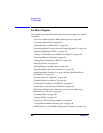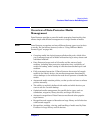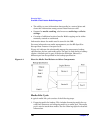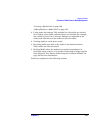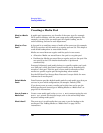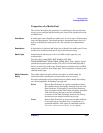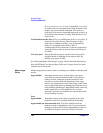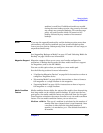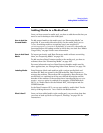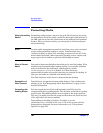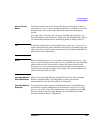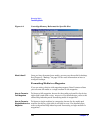
Managing Media
Creating a Media Pool
Chapter 4 103
Properties of a Media Pool
This section describes the properties of a media pool. You specify them
when you are configuring the media pool. Some of the properties can be
modified later.
Pool Name A media pool name identifies a media pool. It can be up to 32 characters
long, including spaces. You should assign a meaningful name that will
help you identify the media pool later, for example, your department
name.
Description A description is optional and helps you to identify the media pool. It can
contain any characters and can be up to 80 characters long.
Media Type Data Protector shows you a list of available media types for your
configuration.
You can select among DDS, DLT, ExaByte, AIT, QIC,
T3480/T4890/T9490, T9840, T9940, T3590, SD-3, Tape, Optical (which
stands for magneto-optical media), File, LTO-Ultrium and SuperDLT.
Once you select the media type, Data Protector calculates the available
space on the media for that media pool. This calculation is based on the
selected media type.
Media Allocation
Policy
The media allocation policy defines the order in which media are
accessed within a media pool, so that media wear out evenly.
For more information on how Data Protector selects media for backup,
see “Selecting Media for Backup” on page 120.
Strict Directs Data Protector to require a specific medium.
The medium has to be already formatted for use with
Data Protector. If this policy is used, Data Protector
does not format media. This allocation policy should be
used with library devices to prevent accidental
overwrite of non-Data Protector media in the library
and where even usage of media has priority.
Loose Directs Data Protector to accept any suitable medium
in the pool except a medium in poor condition or a
protected medium. This option is combined with the
Allocate unformatted media first option.






